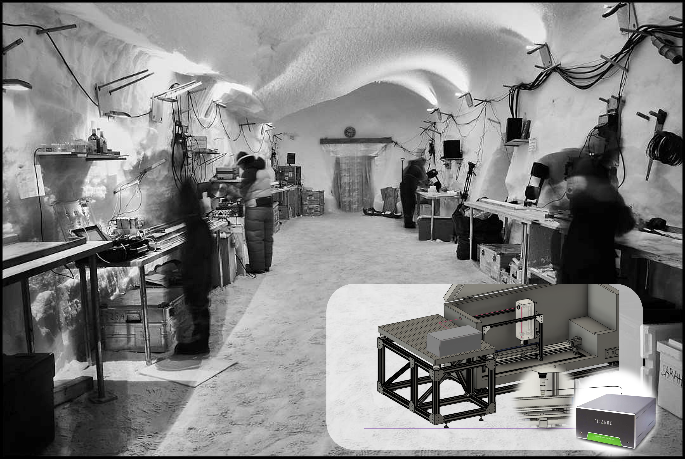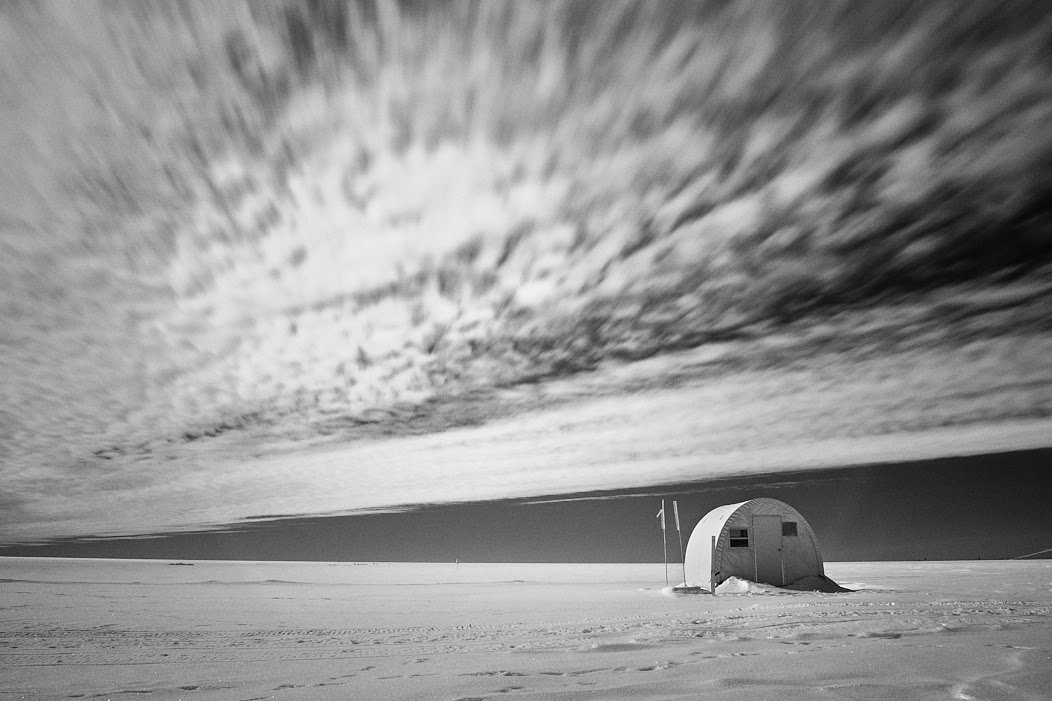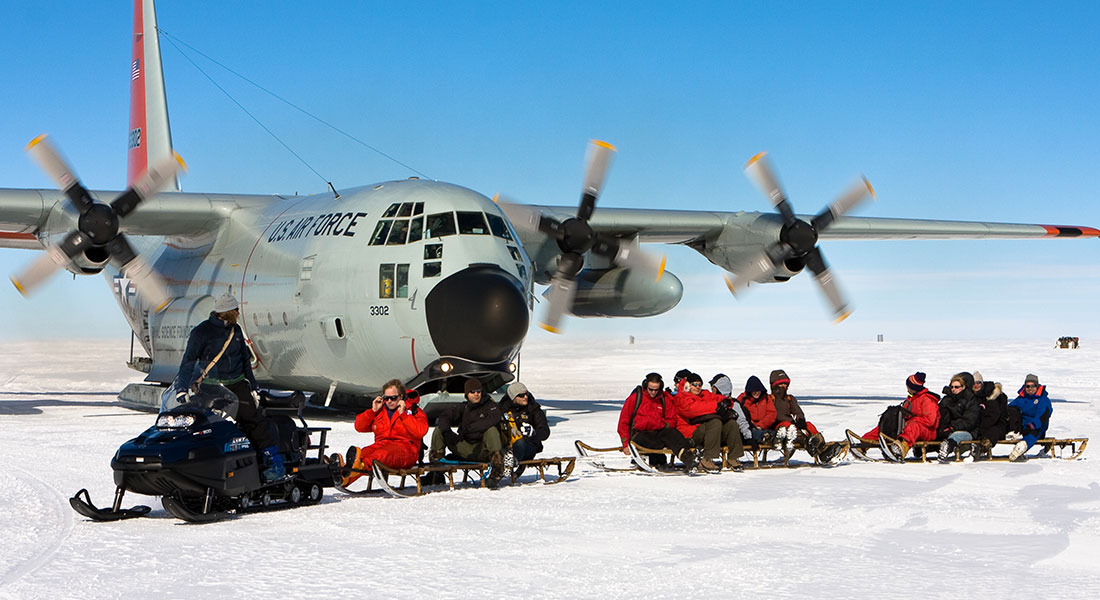Water isotope group
If you have any ideas yourself for MSc and BSc projects in stable water isotopes please contact: Vasileios Gkinis and Bo Vinther
Master Thesis project on Laser Ablation (LA) – Cavity Ring Down Spectroscopy (CRDS) Instrument Development
MSc Thesis project: Building an ablation chamber and a transfer line for LA-CRDS water isotope measurements in ice cores.
Keywords: ice cores; paleoclimate; Antarctica; polar research; laser spectroscopy; laser ablation; ablation chamber; cavity ring down spectroscopy, water isotopes; Python; CAD design;
In light of the Beyond EPICA project aiming to retrieve the Oldest Ice Core in Antarctica (1.5 Myr), a novel instrument for measuring water isotopes in ice cores, called Laser Ablation – Cavity Ring Down Spectrometer, is being developed at PICE. Our goal is to use the powerful micro-destructive Laser Ablation (LA) technique for sampling the ice and a high precision Cavity Ring Down Spectrometer (CRDS) for analyzing the ablated material leading to high quality measurements with focus on the extremely thin layers of the deeper part of the core. Delicate handling of the oldest ice core which will have been retrieved and extraction of high precision and accuracy water isotopic signal is extremely useful for diffusion studies in ice cores and further paleotemperature reconstruction. The novelty of this instrument can be applied for routine measurements of other ice cores from both Greenland and Antarctica.
A linear translational stage and a sample holder, a rail with optical elements and an enclosure filled with dry air flow during the measurement has been already constructed and placed inside a freezer. In this way we managed to ablate ice material in -19oC. The next step and goal of the master thesis project is to design and construct an ablation chamber, as well as a transfer line which will meet the needs of the two parts of the instrument, by the means of ice sampling, collecting and detection. The robust delivery of the ablated ice material from the ablation spot to the CRDS instrument is one the biggest challenges.
As a master student in our lab, you will improve skills in CAD design, 3D printing, Python and Arduino programming tools, digital/analog electronics and flow dynamics. You will also have the opportunity to gain laboratory experience in laser spectroscopy, laser ablation and optics, as well as in instrument development and automation. Prior knowledge to CAD design and/or Arduino sketches and/or flow dynamics will be appreciated.

Contact: Vasileios Gkinis and Eirini Malegiannaki
Investigating past climatic conditions using water stable isotopes
The water stable isotope measured in Greenland ice cores can be used to estimate key meteorological parameters such as temperatures and accumulation rates on the Greenland ice sheet back in time. The water isotopes are even a key component, when we model how the ice sheet is moving near an ice core drill site.
Hence, the water isotope record is a cornerstone of ice core glaciology, and if you are interested in helping us understand the climate of the past in Greenland, then we can always develop project ideas taking a modelling approach on existing ice core data, and often offer projects that also includes a significant measuring component, where you will be expected to carry out new ice core sampling and measurements in the water isotope lab. It is also possible to look deeper into the meteorology driving the water isotope signal we see in our cores together with colleagues with a meteorology background both here at NBI and at DMI.
It is also possible to look deeper into the meteorology driving the water isotope signal we see in our cores together with colleagues with a meteorology background both here at NBI and at DMI.
Contact: Bo Vinther
Gas diffusion modelling in ice cores
Msc Thesis Project: Modelling the termination of the last Ice Age in Greenland with the Community Firn Model

Are you looking for an exciting Msc thesis project where you can combine your Python computational skills with inverse methods and state of the art datasets of N2 and Ar isotopes in order to look far back in Greenland's past climate? If you are fascinated by polar research and curious about climate change processes this may be a unique chance for you to join a dynamic group with decades of history in polar and ice core research.
You will be looking into the abrupt warming signals during the sudden end of the last Ice Age about 12,000 ago and using a state-of-the-art model of snow densification and gas diffusion you will work towards quantifying the magnitude and rapidity of the abrupt climate change during this time. We require that you are familiar with Python and you can expect your skills to get very sharp during the duration of the project. You will get hands-on experience with polar snow/firn modelling tools and high quality datasets of N2 and Ar isotopes from the air bubbles in the ancient ice. We are a very open and dynamic group with a variety of nationalities and backgrounds as well as a wide international network of collaborations.
Should you have any questions on the project feel free to contact: Vasileios Gkinis and Michael Döring
Thesis project on water isotope - ice core instrumentation
Msc Thesis Project: Developing a micro-flow calibration unit for high precision water isotope analysis in ice cores
Keywords: ice cores; paleoclimate; Greenland; polar research; laser spectroscopy; water isotopes; Python; Continuous Flow Analysis; CAD design; micro-fluidics

At the Water Isotope Laboratory at PICE, we are looking for a motivated student to work on a new and exciting project on ice core instrumentation development. We are interested to investigate the use of microfluidics and in particular piezo-actuated micropumps for high-resolution ice core analysis. Our goal is to develop a very low-flow, stable and automated module for the calibration of laser spectroscopy measurements of the stable isotopes of water in ice cores as well as in atmospheric vapor at very low humidity environments (such as the polar ice core drilling sites in Greenland and Antarctica). The project can also be extended to and have useful impact on high-resolution continuous-flow analysis techniques for ice cores.You will become part of an active and social group and can expect to sharpen your skills in Python and Arduino programming as well as CAD design and instrument control. We expect some prior experience with Python and optimally micro-controllers/Arduino language. You can also expect to get hands-on training on laboratory techniques and laser spectroscopy focused on high precision ice core measurements.
Should you have any questions, you are very welcome to contact: Vasileios Gkinis
Recording the sound of ancient bubbles in ice cores
Msc Thesis Project: The sonic signature of ancient air bubbles in ice cores
Keywords: ice cores; paleoclimate; Greenland; polar research; Continuous Flow Analysis; sound measurements; total air content; Python; spectral analysis; bubbles
The air bubbles occluded in polar ice cores contain extremely valuable paleoclimatic information in the form of ancient air, whose composition can be determined in the lab yielding time series of gas concentrations in atmosphere spanning millennia. Another characteristic of the ancient air bubbles is their popping sound emission when ice core samples are being controllably melted for high-resolution Continuous Flow Analysis measurements.
We would like to investigate the audio signal of the “popping” bubbles. Our goal is to perform high quality sound recordings followed by spectral analysis of the bubble popping frequencies in order to infer how many and how large the bubbles are. Therefore, we offer a Master thesis project for a motivated student who will further develop the recording and melting system as well as work on the data analysis of the sounds recordings.
You can expect to gain skills in sound and bubble physics, sound recordings as well as high resolution ice core measurements. You will also work with noise filtering and spectral analysis techniques. Prior experience in data analysis with Python/Matlab is a plus. PICE is an active, multinational/multicultural group with plenty of learning opportunities.
We will be happy to hear from you!
Should you have any questions on the project feel free to contact: Vasileios Gkinis


